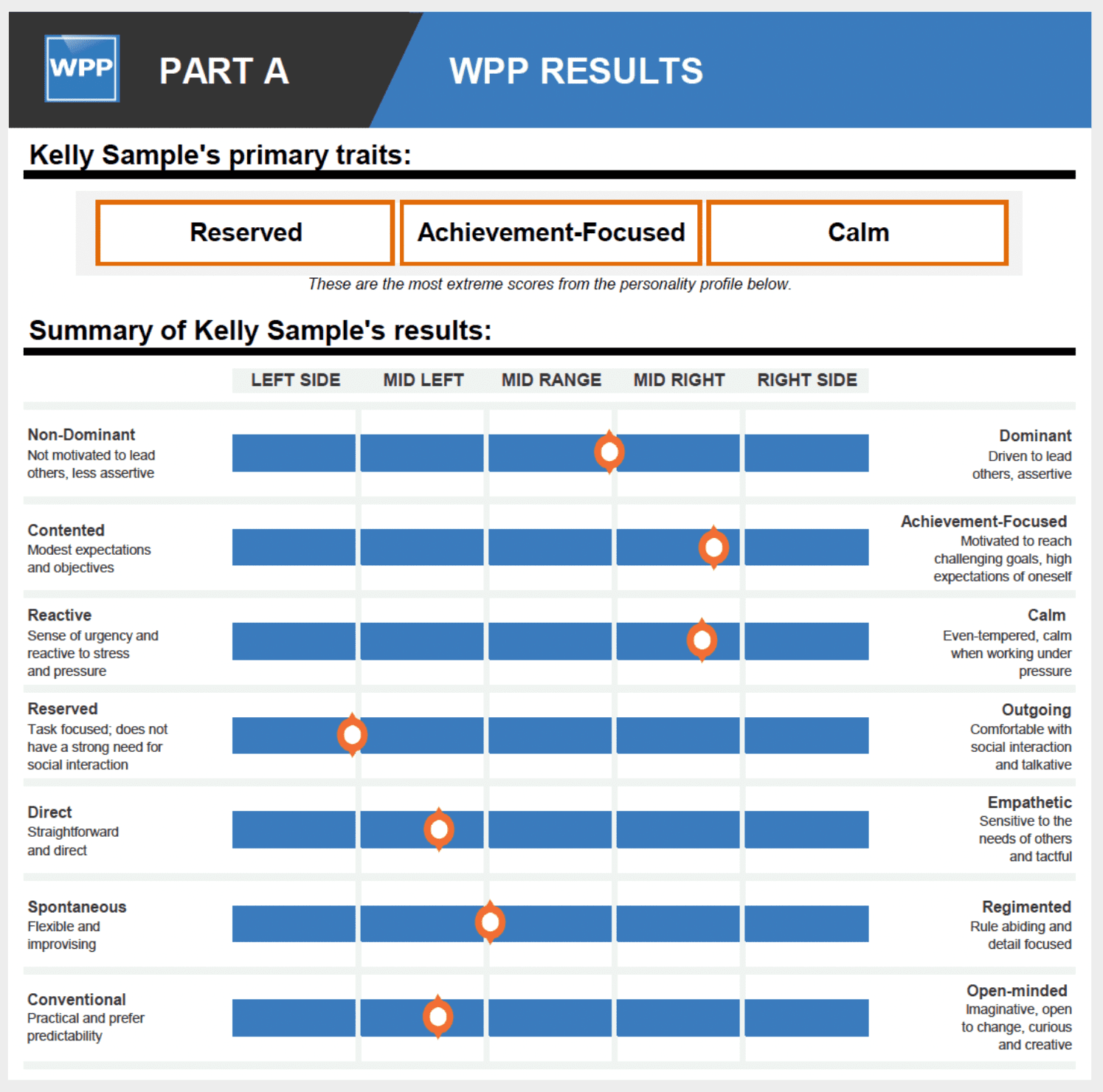In the modern workplace, introverted employees can be misunderstood, and at times, be overshadowed by the misconception that extroverts are more effective team members. These biases ignore the value introverts bring to the table and undervalue the diversity of thought and approach needed to create a thriving workplace. Using psychometric tools is an effective strategy for increasing the visibility of introverted individuals and the unique strengths they bring to the team. These tools can offer key insights for managers seeking to understand, support, and engage with introverted employees more effectively, fostering an inclusive environment that values every employee’s unique strengths.
The Misconceptions Around Introverts
Reports estimate that between 30-50% of the population is introverted (ranging from somewhat to extremely introverted), though exact numbers are unknown. As a minority living in a world that values extroversion, introverts may feel they are overlooked and misunderstood. In all settings, including work, many introverts adapt to an extroverted ideal, despite their discomfort. In her 2002 book “The Introvert Advantage,” Marni Olsen Laney shared that 98% of introverts felt reproached or maligned for who they are, leading many to feel they must “perform” extroversion to succeed in the workplace.
Other notable myths about introverts in the workplace include the incorrect assumption that introverts lack ambition and are not team players. Such misconceptions are untrue and unjust, painting a highly inaccurate picture of introverted professionals who are as ambitious, goal-oriented, and capable of making meaningful contributions as their extroverted counterparts.
Understanding Introversion
Introversion is often misunderstood as shyness or antisocial behavior, but it is fundamentally about how an individual gains energy. So this is not about one’s social skills, but more about how much social interaction they need on a day-to-day basis to feel energized and engaged.
Unlike extroverts who thrive on social interactions, introverts recharge by spending time alone, and reflecting on their thoughts. This personality trait affects individuals in the workplace in varied and profound ways. Introverted workers prefer to work independently or find it easier to focus on independent work, and tend to process their thoughts and reflect quietly before sharing their ideas with others.
Introverts vs Extroverts: How they may be perceived by colleagues
|
Introverted / Reserved individuals may be perceived by their co-workers as:
Or
|
Extroverted / Outgoing individuals may be perceived by their co-workers as:
Or
|
How Psychometric Tools Can Help
The Benefits of Psychometric Tools
As organizations strive to create more productive and high-performing workplaces, psychometric tools can play a significant role. These tools, designed to measure individuals’ personalities and predict their behaviors, offer insights into how traits, including introversion and extroversion, influence professional performance and dynamics within a team. Their relevance in the modern workplace cannot be emphasized enough.
For introverted individuals, understanding one’s strengths and areas for development is beneficial for on-the-job self-awareness and engagement. This self-awareness can empower introverts to leverage their unique capabilities and address any challenges with informed strategies. Psychometric assessments provide a structured, impartial means for individuals, managers and team mates to also gain this understanding.
TalentClick and Understanding Introversion
TalentClick measures introversion in the Workstyle & Performance Profile in the dimension Reserved vs Outgoing. Reserved individuals tend to be more task-focused and don’t need social interaction, whereas Outgoing individuals tend to be more talkative and enjoy more social interaction. How people score on this dimension tends to define how other personality traits such as achievement orientation, leadership orientation and communication styles will show up for them.

Achievement Orientation and Introverts
For example, individuals who are Reserved and High Achieving have high expectations for themselves and are self-motivated, but are a ‘heads down’ quiet worker. They may go unrecognized because they are not sharing and highlighting those achievements with others. Whereas Outgoing individuals are more likely to seek verbal validation from others and will share their progress on their way to their achievements, making their achievements more easily noticed by others.
Stress Tolerance and Introverts
Another example is stress tolerance. Individuals who are highly Reserved and Reactive are unlikely to show their stress, even when feeling extreme stress. They may appear calm on the surface (like a duck above water), but under the surface, they are paddling frantically to stay afloat. Knowing who these individuals are in your organization is important, as they may be quietly paddling toward burnout without your knowledge. Being proactive by checking in regularly on their level of stress will help the employees feel heard and supported. (Check out this article for tips and tricks on managing employee stress)
Open Communication and Introverts
TalentClick’s Work Values & Attitude Profile also measures Open Communication as a personality trait. Reserved individuals tend to be low in Open Communication, meaning they are more cautious of what they share and who they share it with. On the positive side, this can lead to a stronger sense of discretion. However, this can also make introverts appear stand-offish, closed-off, and secretive. This is why Reserved individuals may often be misunderstood and have a harder time sharing their achievements or feelings of stress with others in the workplace.
How Managers Can Use Psychometric Results
Managers can use psychometric assessment results to personalize their approach to supporting and maximizing the contributions of introverted team members. The TalentClick Employer and Participant Reports offer detailed, actionable insights, and personalized management tips into each personality dimension, allowing managers to support the unique personality profiles of all their workers.
The strategic use of psychometric assessment tools, such as those provided by TalentClick, offers a twofold advantage:
- Participant Reports help introverted individuals to increase their self-awareness on how they may be perceived by others, and provide self-coaching to help them harness their strengths.
- Employer Reports equip managers with the knowledge and insights necessary to foster a truly inclusive, dynamic, and high-performing team environment.
Self-Coaching Tips for Introverts
To increase their visibility in the workplace without compromising their natural tendencies, introverts can employ several strategies. Providing these employees with their Participant Reports for self-insight is a first great step! From there the personalized self-coaching tips can help introverted and reserved individuals find strategies to overcome their unique makeup of personality traits.

Psychometric insights can guide personal development and visibility strategies, offering a structured approach to understanding and utilizing one’s inherent strengths. Managing stress and recharging is crucial; introverts should prioritize quiet time and activities that restore their energy.
Tips for Managers
There are many strategies for managing and engaging introverted workers in an inclusive way. It all starts with understanding the unique profiles of each member of an organization’s team. Personalizing a manager’s approach to suit introverted team members’ needs is a great start – and the manager tips in TalentClick’s Employer Reports are great resources.

Beyond that, providing opportunities for introverts to showcase their work in comfortable settings, such as small group presentations or through written reports, allows them to demonstrate their capabilities confidently. Introverts may not seek recognition for their work or accomplishments, so taking the time to acknowledge the value they bring to the team is a great way for them to know their efforts aren’t going unnoticed. Overall, giving introverts comfortable opportunities to shine for their efforts as extroverts, in meaningful, personalized ways, will go a long way to sustaining introverts, preventing burnout, and increasing engagement.
Conclusion
Introverts offer invaluable insights and strengths to the workplace, contributing to a diverse and balanced team dynamic. Self-awareness through psychometric tools empowers introverts to leverage their unique strengths, while managers can use these insights to personalize their support and development plans for introverted team members. By fostering an environment that celebrates diversity and provides opportunities for all personality types to thrive, organizations can enhance productivity and innovation.
We encourage organizations to leverage psychometric solutions, such as those offered by TalentClick, to create a more inclusive and productive workplace environment. For further reading and resources on enhancing the support and development of introverts in the workplace, explore TalentClick’s suite of psychometric solutions.
Discover how TalentClick’s psychometric solutions can empower both individuals and managers to harness the full potential of introverts in the professional setting. Try our behavioral solutions to get the full picture of your workforce.










